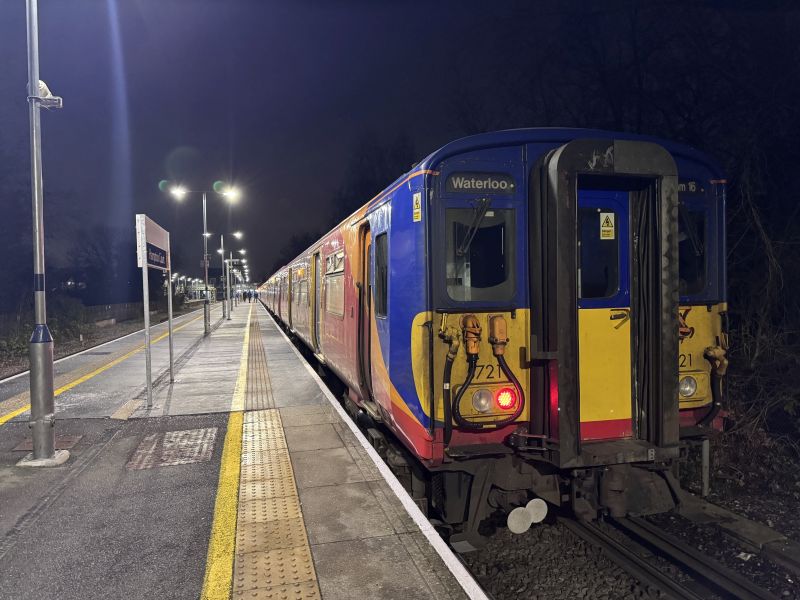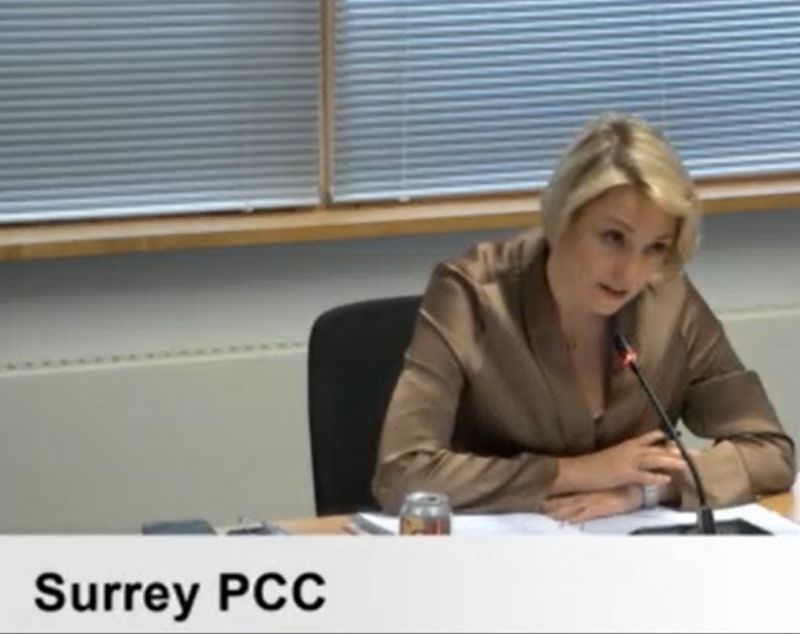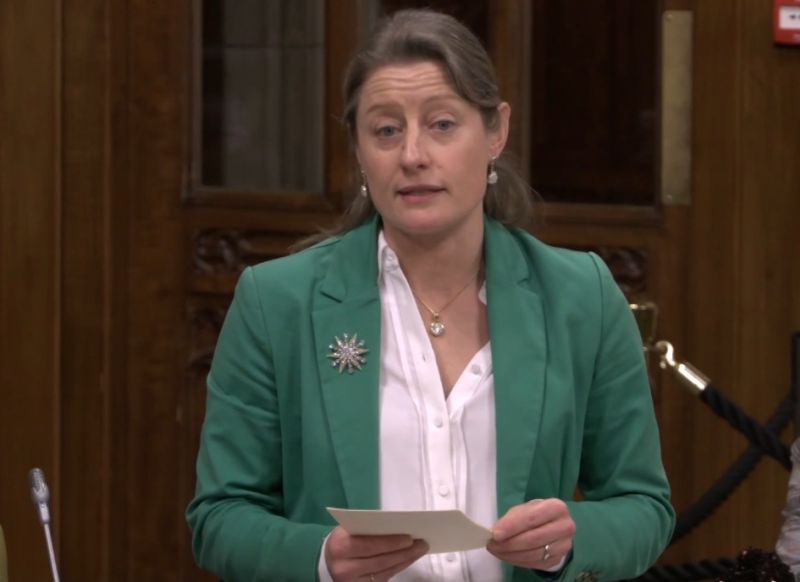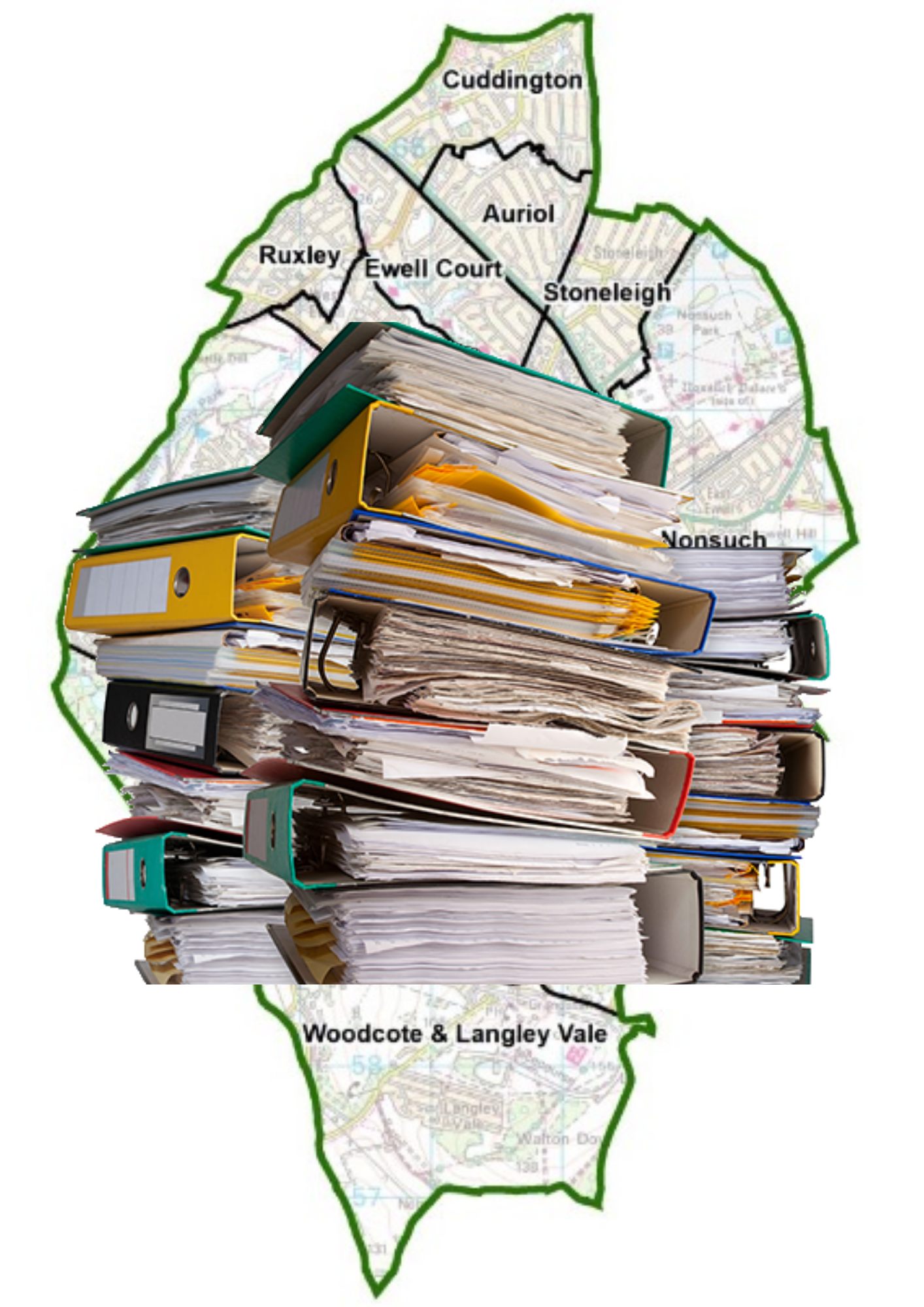The Local Plan to plan The Local Plan
Epsom and Ewell Borough Council’s Licensing and Planning Policy Committee (LLPC) met on the 26th of May 2022 to agree on a timetable for consultation on drafting “The Local Plan”.
A Local Plan provides Epsom and Ewell Borough Council (EEBC) with policies on development, building heights, renewable energy requirements etc. Without a Local Plan EEBC has limited ability to refuse what otherwise might be planning applications the Council and local residents might think are inappropriate. The LPPC agreed on a revised “planning framework” which will be the foundation for The Local Plan preparation.
The layers upon layers of documents and policies involved would go beyond satisfying Sir Humphrey Appleby of “Yes, Minister”. A bureaucratic labyrinth that may occupy officers for years, baffle elected representatives and endlessly confuse the public.
In 2016 the Council commenced the production of a new Local Plan but it has never got to the final stage of completion. Why the long delay? Council officers cite as reasons for the delay the intervention of Brexit, Co-Vid and new national planning policy. Those interruptions to the process meant that other sources of evidence about housing and economic needs became out-of-date. An adopted Local Plan should be based on evidence no more than three years old when examined during the preparation of The Local Plan.
Yet these excuses can be contrasted with the achievements of Epsom and Ewell’s neighbours. Mole Valley District Council submitted to the Government its Local Plan on 14th February 2022, with much of the preparatory work on it being done during the Brexit and Co-Vid years. Elmbridge Borough Council approved its draft Local Plan on 23rd March 2022. Reigate and Banstead Borough Council adopted its equivalent “Development Management Plan to 2027” in September 2019. The London Borough of Sutton’s Local Plan to 2031 was adopted in February 2018 and finally, Epsom and Ewell’s last neighbour to mention, the London Borough of Kingston-Upon-Thames has started its development of a Local Plan aiming to have it approved by central government by 2024.
In April 2022 the Epsom and Ewell LPPC agreed on the following timetable for the Local Plan process:
October/November 2022 – Drafting the Local Plan commences
October/November 2023 – Submission to Public Consultation
December 2023 – Submission to the Secretary of State
Winter 2024 – Estimated date of Adoption
If this timetable is not interrupted then nearly 8 years will pass between the 2016 start and the estimated final adoption of this vital Local Plan.
The Local Plan also is important as it plays a role in implementing objectives that are set out in EEBC’s Climate Change Action Plan (CCAP) and has a key role in delivering sustainable development. One of the key objectives of the CCAP is the adoption of 2035 as the year for when EEBC itself should aim to be net carbon
neutral.
The preparation of The Local Plan involves a raft of contributing policies and documents:
A Sustainability Appraisal (SA). The first stage is the preparation of an SA “scoping report”. This is a tool to appraise planning policies and spatial options for development. It is made up of objectives, indicators and targets tailored to the key sustainability issues for Epsom and Ewell Borough. Planning policies are looked at against these to understand how they will contribute to the sustainable development of the Borough. The last SA was in 2017 and is treated as out-of-date.
A duty to cooperate framework is being developed to agree to the strategic cross-boundary issues with EEBC’s DTC bodies. EEBC’s DTC bodies include neighbouring local councils and other statutory bodies.
A Land Availability Assessment (LAA) -This assesses all sites for all uses. A key part of this is to ensure EEBC has considered all sites and left no stone unturned. A Housing and Economic Development Needs Assessment (HEDNA) – The core component of this work is to provide an integrated assessment of future housing needs (including a breakdown by type, tenure, and size) the scale of future economic growth and the quantity of land and floor space required for employment development across the Borough.
A Viability Study – The role of the viability assessment is primarily at the plan-making stage. Viability assessment should not compromise sustainable development but should be used to ensure that policies are realistic and that the total cumulative cost of all relevant policies will not undermine the deliverability of the plan. A policy about policies!
A Climate Change Study (CCS) – this study is aimed at exploring how climate change objectives, both in respect of mitigation and adaptation, might most effectively be addressed through the emerging Local Plan. Epsom Town Centre Masterplan will be a key piece of evidence to inform the Council’s Local Plan by identifying development options for specific key town-centre sites and identifying how the wider town centre could be improved. This evidence will be used to inform the Local Plan spatial strategy, site allocations and policies including matters such as land uses and scale of development. EEBC has secured some £225,000 of funding from The Department for Levelling Up and the regional Local Enterprise Partnership fund. The money is earmarked to pay consultants to develop this Epsom Town Centre Master Plan, including digital community engagement plans. Next week we will report further on the preparations of this “masterplan”.
A Statement of Community Involvement (SCI) sets out who, how and when EEBC consults others about all manner of planning applications and planning policies. The latest draft SCI was approved at the 26th of May 2022 meeting and is subject to public consultation on itself, prior to a final document to be presented to the LPP’s 28th of July 2022 meeting.
The consultation has opened and closes at noon on the 4th of July 2022. Participate via this link: Epsom and Ewell register
Epsom and Ewell Times urge readers to urge the Council to use local online news services to publish its planning notices. At present, the Guidelines only provide for the use of printed newspapers of which there are none truly dedicated to serving Epsom and Ewell.
There are other documents that will feed into the creation of the Local Plan not least the National Planning Policy Framework published in July 2021 by the Department for Levelling Up, Housing and Communities, which requires a Local Plan to be:
Positively prepared – providing a strategy which, as a minimum, seeks to meet the area’s objectively assessed needs; is informed by agreements with other authorities, so that unmet need from neighbouring areas is accommodated where it is practical to do so and is consistent with achieving sustainable development.
Justified – an appropriate strategy, taking into account the reasonable alternatives, and based on proportionate evidence.
Effective – deliverable over the plan period and based on effective joint working on cross-boundary strategic matters that have been dealt with rather than deferred, as evidenced by the statement of common ground.
Consistent with national policy – enabling the delivery of sustainable development in accordance with the policies in the Framework and other statements of national planning policy, where relevant.
LPPC member and Labour Councillor Kate Chinn (Court Ward) commented after the 26th May meeting: “It is vital that Epsom and Ewell Borough Council manages to meet the timescales just agreed at the LLPC committee meeting to produce the Local Plan. There has been too much dither and delay and without the plan, the Council
cannot ensure that residents are consulted and enabled to remain in the Borough. The plan must meet the challenges of minimising climate change and demand that homes are built to a high standard for Borough residents to live and settle in with security of tenure. The current priority seems to be challenging the government’s target of how many homes the Borough build which is surely not the main objective. Councillors should be listening to people and looking at the number of people with housing needs who are living in expensive Borough temporary housing. Currently, families are being moved away from both their support networks and their children’s schools. The borough needs a plan that works with housing associations to provide social housing of a good standard with EV points, solar panels, insulation and where possible heat pumps.”
Julie Morris Liberal Democrat Councillor for College Ward was stark in her criticism and said after the meeting: “Epsom & Ewell’s new Local Plan has become the train to nowhere. Every time we have apparently had the human and financial resources in place to make progress, things have stalled. The ruling RA (Residents Association) group seems oblivious to the importance of the Local Plan in delivering policies designed specifically for Epsom & Ewell. It regularly chooses to blame central government rather than look inwardly to its own lack of leadership and commitment to the task.”
Epsom and Ewell Times invited the Conservative Councillor and an RA Group Councillor to comment too.
Watch out for updates on Epsom and Ewell Times on the consultations and other key developments. If you want to go into even greater detail go to the Committee pages of the Epsom and Ewell Borough Council website and the pages of the independent Epsom Civic Society.
By our special correspondent.



















